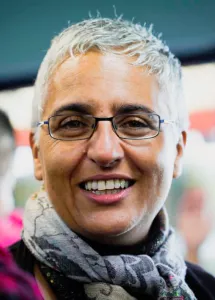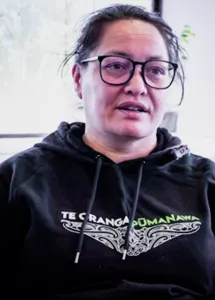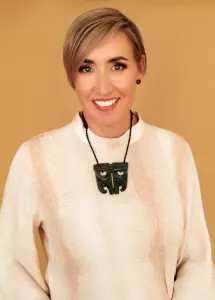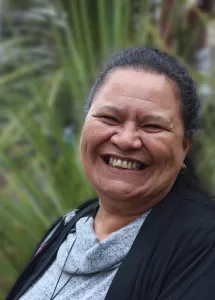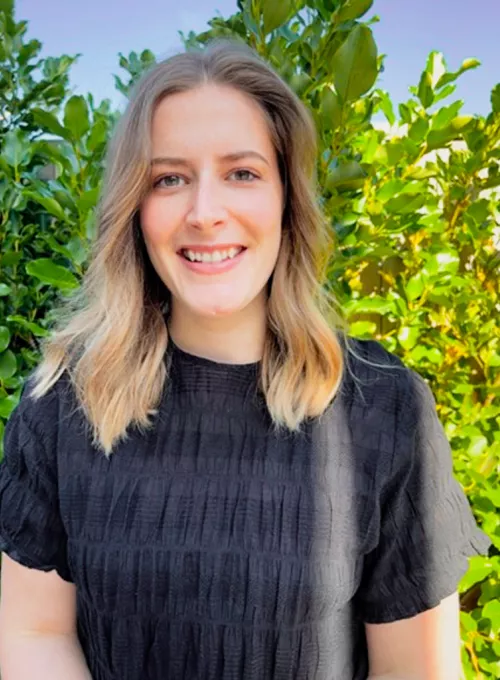
Nasya Thompson is a Trainee Intern at Christchurch Hospital. She entered medicine through the graduate pathway after completing a Bachelor of Science Honours degree in 2018. Her motivation for a career in medicine is deeply influenced by her whakapapa Māori and a genuine interest in enhancing the health and wellbeing of herself, her whānau, and the wider Māori community. Witnessing first-hand the health disparities that disproportionately affect the Māori community, Nasya felt a strong calling to take action and make a difference. She is dedicated to advancing Māori health services and instilling a Māori perspective and presence into the academic and clinical side of the hōhipera.
Nasya has always valued the hands-on clinical aspect of medicine but is also drawn to the potential of research. She recognises that through research, significant changes can be realised. Since completing her honours degree, she has consistently engaged with the research community, steering her inquiries towards Māori-focused research. She has participated in retrospective audits examining equity in Māori access to care and management. She has had the opportunity to present her research at both national and international medical conferences. At present, she is embarking on a project to explore the integration of Rongoa Māori into hospital settings. Working alongside health leaders such as Professor Jonathan Koea and Ms Tamara Glyn, has allowed her to support valuable research and experience delivering measurable benefits for Māori.
In addition to her studies, Nasya is actively involved in the 2023 Te Oranga Executive group, which allows her to participate in strengthening the future Māori health medical workforce. This year, Nasya has established Te Oranga ki Ōtautahi, a local rōpu in Ōtautahi, to support and advocate for Māori tauira and tākuta, as well as providing platforms for the discovery and further development of identity and passion within both the medical world and Te Ao Māori.
In 2022, Nasya was awarded the Pegasus Health Workforce Development Scholarship and the Tī Maru Māori Trust Prestigious Scholarship for her fifth year of study in the Bachelor of Medicine programme. These scholarships support individuals from priority communities in their journey towards a healthcare career. She was also awarded the Royal Australasian College of Surgeons Indigenous ASC award in 2022 and the Peer Support Award in 2023 to attend the ASC in Australia.
Moving forward, Nasya envisions herself specialising in surgery within the hospital system. Currently, with a limited number of Māori consultant surgeons in Aotearoa, the disparity is evident. This shortage is not just a matter of representation; it signifies a broader gap in providing culturally attuned and equitable care for Māori patients within the hospital setting.
As an aspiring Māori health practitioner, Nasya is on the pathway to becoming a future Māori health leader.
Links:
Canterbury Medical Research Foundation
Royal Australian College of Students
